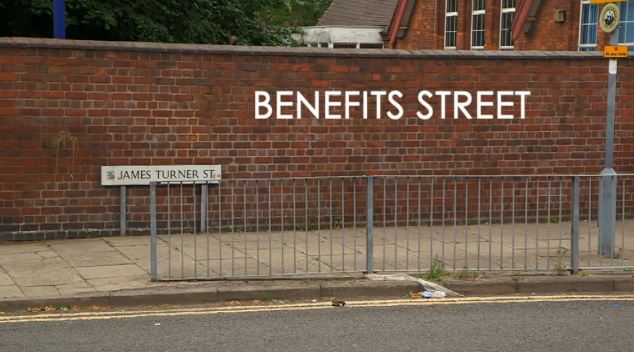“There’s a lot we need to do in this party of ours. Our base is too narrow and so, occasionally, are our sympathies. You know what some people call us – the nasty party.” Theresa May, October 8th 2002.
February 17th 2015, David Cameron announces plans to make 50,000 youths spend 30 hours a week on community service schemes to keep their “Youth Allowance” benefits. The Youth Allowance, by the way, is £57 a week. And today’s announcement follows suggestions that fat people should lose access to benefits unless they lose weight.
Look, it’s not the goal that’s the problem here. When Cameron says there is a moral quality to reducing the benefits bill he is not wrong. When he says there are people who could work – and with the right assistance can work – he is not wrong. When he says that there’s nothing compassionate about being stranded on benefits he is right. There’s too much hopelessness, too much despair, too much stunted human capital.
But if Tory aims are one thing, Tory means are quite another. It is hard to avoid the thought that there’s something unseemly about this determination to bash one group of folk who are most unlikely to vote Conservative to please – nay, to titillate – another group who will more likely back the Tories.
It is the evident relish with which the Tories talk about these matters that is troublesome. As I’ve written before, the Tory message this election season can be boiled down to Tax cuts for our chums, welfare cuts for you. That’s not a good look.
Because it’s not enough to have the right intentions. You need to persuade people you have the right intentions for the right reasons. That you aren’t punishing some of the weakest – voiceless – groups for the edification of other, stronger, louder, groups.
Alas, it is hard to avoid the thought the Conservatives are keener on sticks than carrots. The thirst for birching, always latent in the Tory party, is being let loose again and it is not an attractive sight.
Of course, beating up benefits-claimants is popular. It’s the kind of thing that always polls well. But it’s one of those false-friend policies. Superficially popular but, in a deeper sense, corrosive. Because it reinforces negative stereotypes people hold about the Conservative party. It reminds voters – and they really need very little prompting to be reminded of this – that the Tory party is the party of the rich. And that perception is the single greatest weakness the Tory party endures. It has not shaken that image and, in truth, it is hard for it to do so when the party is led by the sons – and they are mainly sons – of privilege.
Or, to put it another way, it is one thing for a politician with John Major’s background to talk about benefit sanctions, quite another for a politician lumbered – through no fault of his own – with the handicap of Eton and Oxford. Doubtless this is unfair but so are many things and there’s not a lot of point in complaining about it.
Contrast, too, the evident zeal with which the Tories talk about curbing benefits and their disinclination to talk seriously about tax evasion. It is a question of sympathy, as Theresa May correctly observed a dozen years ago. And we kinda know where Tory sympathies lie.
Again, having the right policies – or at least the right ambitions – is not quite enough. You have to have them for the right reasons too and you have to convince voters you have them for the right reasons as well.
Which in turn means being just as interested in carrots as in sticks. I don’t doubt Cameron’s sincerity on this just as I don’t doubt Iain Duncan Smith’s but the problem, I suspect, is that they haven’t persuaded the public of their sincerity and this, in turn, helps substantiate and nurture the negative stereotypes that have done so much damage to the Tory ‘brand’ these past 15 years. Tough on welfare, tough on the causes of welfare is always going to be an easier sell for Labour than the Tories because voters suspect Labour’s sympathies are gentler and less vindictive than the Tories’. That is, Labour’s sympathies spring from the right place. (Conversely, the Tories are always likely to be better placed to deal with tax avoidance and evasion, especially when it comes to tackling business and the super-wealthy.)
Again, this may be unfair – Theresa May reckoned it was unfair that people called the Tories “nasty” too – but it’s the way it is. Which is also why the Conservatives should be more careful when they talk about welfare and benefits. Because, even in straitened times, who really wants to vote for The Nasty Party?







Comments